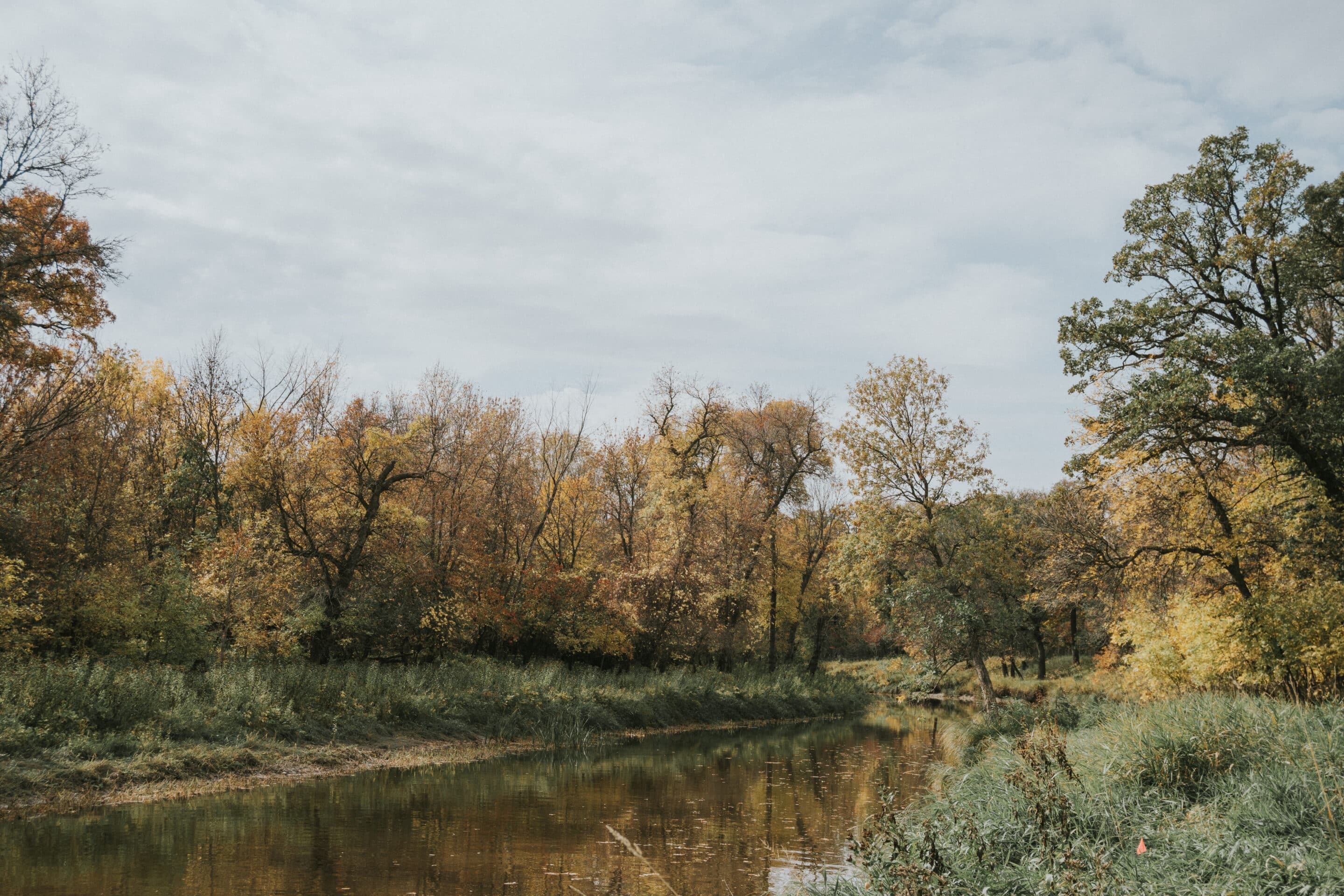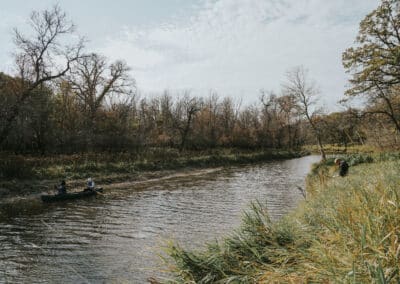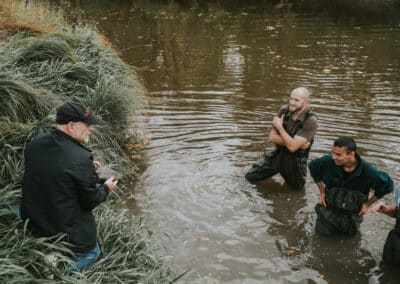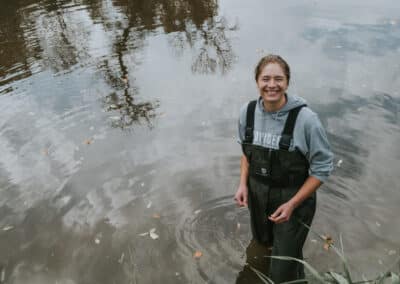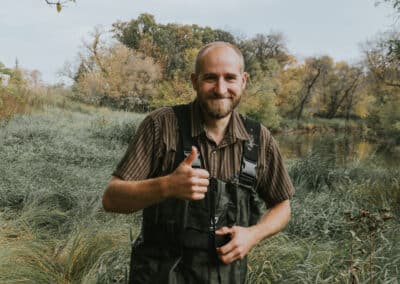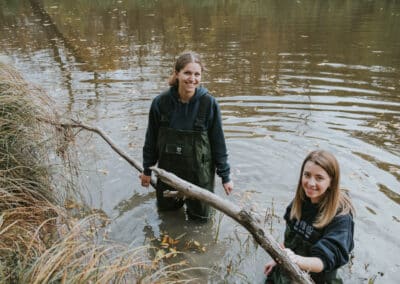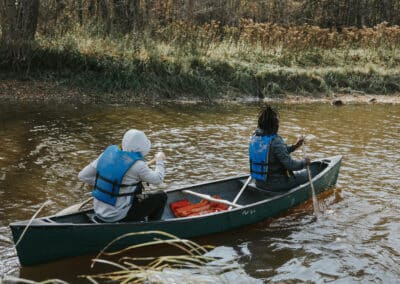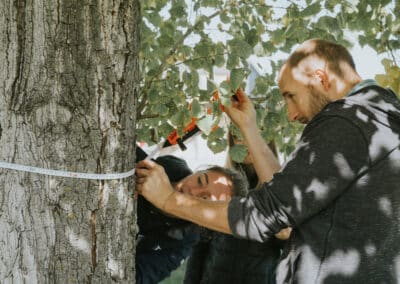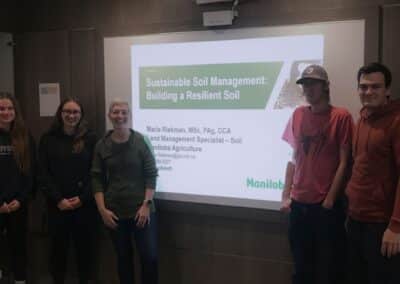OTTERBURNE, MB – The environment is top of mind for so many these days, and for good reason. From rising temperatures and tides, to polluted water and food insecurity, to health epidemics and endangered species, humanity in the 21st century has found itself at the very centre of various unprecedented ecological crises. In fact, the current epoch is commonly referred to as the “Anthropocene,” which refers to the momentous global impact that humans themselves have had on the world over the past 100 to 200 years (e.g. climate, landscape, ecosystems, etc). Without understanding the factors that led to our predicament and what can be done to course-correct, there is little potential for circumstances to improve. On the contrary, if the status quo of production and consumption established by the industrial revolution and beyond is upheld, one can only expect things to get worse.
Anabella Perez is a first-year student from Winnipeg who is currently looking to pursue a degree in Environmental Science.
“It is important to respect and acknowledge all that the Earth does for us and to find ways to improve how humans have been using the Earth in the past and the present. We need people knowledgeable on how the environment works, and how nature and biodiversity are important. Environmental science helps us to find solutions on how to change or ameliorate our ways of life, so that it is not as damaging to the Earth.”
Starting in Fall 2024, students like Perez will have the opportunity to pursue a four-year BSc in Environmental Science. Spearheaded by Assistant Professor of Environmental Science, Dr. Bruce Friesen-Pankratz – with support from Associate Professor of Health Sciences, Dr. Rebecca Dielschneider – this Bachelor of Science is an interdisciplinary degree that combines research in scientific areas such as biology, chemistry, geology, ecology, as well as key subjects like economics, sociology, and law.
“I am very excited to get my degree at Providence and believe this is a very special program,” said Perez. “The science community and professors make this place amazing, as well as the nature that we have all around us, right on campus – especially the Rat River ecosystem.”
Because of its forested, riverside and agriculturally-adjacent location in Otterburne, the Environmental Science program is uniquely positioned to offer a mix of hands-on field methods and laboratory components. One recent graduate of Providence – Alex Wolf – is actually now working as a Watershed Technician for the Seine Rat Roseau Watershed District.
“It’s very easy to see how the environment has an effect on us and how we have an effect on it,” shares Wolf. “Working with agricultural producers – helping them to transition to more environmentally friendly options – I have learned a lot about how we can change our commercialized ideas of things to be more consistent with how nature works.”
During her time studying General Biology at Providence, Wolf made some important discoveries that continue to guide her personal choices and career path, such as the importance of living modestly within one’s means, implementing best practices in farming, insisting on better ways to deal with food waste, and being intentional about reducing deforestation. About this, she said:
“[At Providence] we discussed the correlation between changing climates and the spread of disease between animals and humans. Things like cutting down forests increase our contact with wild animals and therefore increase the risk of new diseases being transferred to humans. This was something that helped me really understand how important the health of the environment is and how humans have so much of an impact.”
Is it possible for substantive changes to be made locally and globally, in both personal practice and political policy? Can green initiatives, alternative sources of power, conservation of natural resources and the like translate into better quality of life for all – for human and non-human animals alike, as well as for the complex ecosystems where they live? And is it achievable through science to ensure sustainability as it pertains to food, water, health, education, sanitation, clean energy, and responsible trade? This is indeed the hope of Providence’s new Environmental Science degree, which will continue to provide a strong academic foundation for students like Anabella and Alex to pursue careers in one of the fastest growing employment sectors in Canada and around the world.
For more information about Environmental Science at Providence, visit Prov.ca/ENVIRO.

